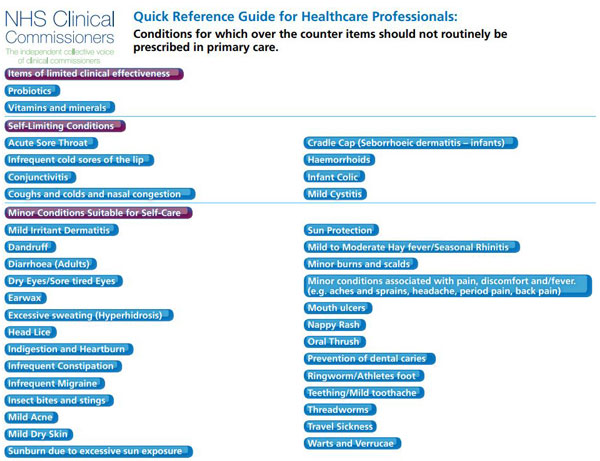Self Care Week 2019: Helping British People ‘Self Care For Life’
Executive Summary
The UK's Self Care Forum is helping pharmacists and other healthcare professionals talk to consumers and patients about self care during Self Care Week 2019.
To mark this year’s Self Care Week in the UK (18-24 November), the country’s Self Care Forum has launched an e-learning package to help British pharmacists and other healthcare professionals work self-care advice into their conversations with consumers and patients.
The four-module online course – entitled “Successful self-care aware consultations” – aims to “equip healthcare professionals with the knowledge and skills to conduct ‘self-care aware’ consultations to support people to have the confidence to better look after their own health when it comes to self-treatable conditions,” according to the course website.
“As a general practitioner, I discovered over 30 years ago that people want to look after themselves as well as they can and want to be reassured they are getting it right,” commented Self Care Forum’s president, Dr Peter Smith. “By including self-care messages in as many contacts as possible we can help them achieve this.”
The course was “ideal” for community pharmacists, insisted Self Care Forum trustee Professor Rob Darracott, who were “health experts on the high street and are well placed to deliver self-care advice, while signposting people to the most appropriate care for their health needs, whether this is self care or an NHS service.
“Ensuring people can safely look after their own health is important,” he added. “This program makes it clear that self care is not ‘no care’, it’s care with the support people need to look after themselves and their families.”
NHS England: Stop Prescribing OTCs
Self Care Forum noted that its online course was commissioned by NHS England to support its guidance asking GPs in the UK to stop routinely prescribing OTCs for self-limiting conditions that lend themselves to self-care.
Published in April last year, the guidance restricts the prescribing of OTC medicines for 35 minor conditions, including cold sores, acute sore throats and coughs, colds and nasal congestion (see Figure 1).
Vitamins/minerals and probiotics were also included in the guidance due to their “limited clinical effectiveness” and “high cost” to the UK National Health Service, NHS England noted.
Pointing out that the NHS spent around £569m ($736m) on prescriptions for OTC medicines in the year ended June 2017, the service’s Clinical Commissioners group said that these prescriptions were often issued for self-limiting conditions that would “heal or be cured” of their own accord.
Furthermore, these prescriptions, the NHS said, included products which could be purchased OTC, “sometimes at a lower cost than that which would be incurred by the NHS.”
Restricting prescribing for the 35 minor conditions – along with probiotics and vitamins, minerals and supplements – could save the health service up to £136m once “all discounts and claw backs” had been accounted for, NHS England said.
Recommendation Scrips The Solution
Commenting on the guidance at the time, chief executive officer of the UK self-care industry association, PAGB, warned that many people lacked sufficient knowledge on which medicines were available without a prescription and looked to their doctor for advice. (Also see "UK needs recommendation scrips" - HBW Insight, 27 Apr, 2018.)
While applauding the NHS for looking at solutions to encourage people to self care, Smith pointed to PAGB’s proposals for “recommendation prescriptions” – modeled on Germany’s Grüne Rezept’ ("green prescription") system – which would allow GPs to suggest OTC products to patients with self-treatable conditions without any dispensing cost to the NHS.
PAGB’s recommendation scrip proposal was one of seven made in its recent “Self-Care White Paper,” with others suggesting that the health service should embrace digital solutions to support people to self-care, such as smartphone health apps and that UK pharmacists should be granted “write access” to patient medical records. (Also see "Apps and Recommendation Scrips Could Save UK's NHS £1.5bn A Year, Says PAGB" - HBW Insight, 28 Mar, 2019.)
PAGB has also recently launched a new “Strategy to 2025.” In an exclusive interview with HBW Insight, PAGB CEO Smith revealed that alongside continuing to push for recommendation scrips, prescription-to-OTC switch, the UK’s exit from the European Union (“Brexit”) and digitalization were three major priorities for the British self-care industry over the next few years. (Also see "Switching, Brexit and Digital – Three Priorities For The UK Self-Care Industry" - HBW Insight, 5 Nov, 2019.)

